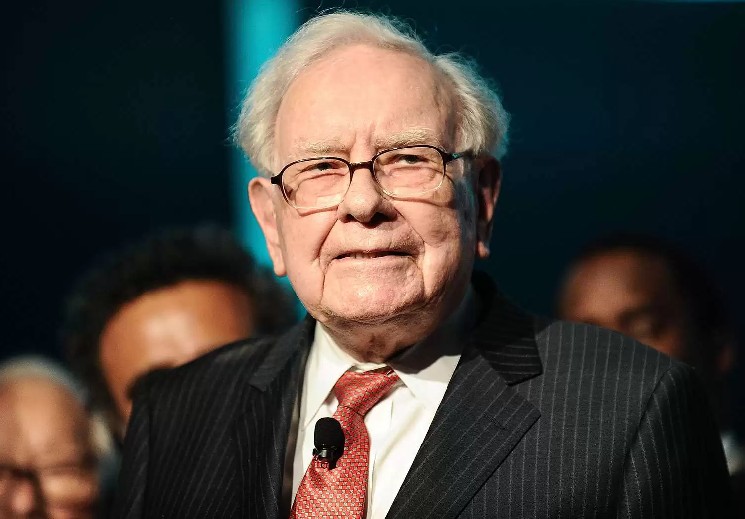Buffett’s Final Chapter: Berkshire Hathaway Announces Warren Buffett’s Farewell Letter
Legendary Investor to Address Shareholders and Public in Historic Communication
In a move that signals the end of an era in American business, Berkshire Hathaway has announced that Warren Buffett will publish what many consider his farewell letter on Monday, November 10. This highly anticipated communication will mark the first public address by the 94-year-old investment titan since his May announcement that he would step down as CEO by year’s end, concluding a remarkable six-decade tenure at the helm of one of the world’s most successful investment vehicles.
The forthcoming letter carries significant weight in financial and business circles, with Berkshire confirming it will cover Buffett’s philanthropic endeavors, reflections on the company he transformed from a modest textile operation into a global powerhouse, and his perspective on “other matters of interest to shareholders and the public.” Industry observers view this communication as Buffett’s official capstone to an unparalleled career that has seen him become not just an investment legend but also a cultural icon whose annual shareholder letters have been studied like sacred texts by generations of investors.
The Oracle’s Transition and Recent Investment Strategy
Throughout 2025, market participants have carefully monitored Buffett’s final moves as Berkshire’s chief decision-maker. His recent investment strategy has notably favored divestment, with Berkshire maintaining its position as a net seller of stocks for an unprecedented 12 consecutive quarters. This persistent selling pattern represents one of the longest such streaks in the company’s history and has prompted extensive speculation about Buffett’s market outlook as he prepares to hand over leadership responsibilities.
Financial analysts tracking Berkshire’s movements suggest the company may have further reduced its substantial position in Apple during the third quarter, continuing a gradual retreat from what had become Berkshire’s largest single stock holding. This potential reduction aligns with Buffett’s historical tendency to make significant portfolio adjustments during leadership transitions, though official confirmation will only come with regulatory filings. The sustained selling activity across a dozen quarters may reflect Buffett’s characteristic caution about current market valuations and his desire to position Berkshire advantageously for his successors.
Market Performance and Investor Reaction During Transition
The announcement of Buffett’s upcoming letter comes against a backdrop of somewhat underwhelming market performance for Berkshire shares following his retirement announcement. Despite the company’s storied history of outperforming market benchmarks under Buffett’s leadership, Berkshire Hathaway stock has trailed the S&P 500 throughout much of 2025. Current projections suggest Berkshire shares will finish the year with approximately 10 percent appreciation, notably lagging behind the broader market index’s more robust 14.4 percent gain during the same period.
This performance differential has raised questions among some longtime Berkshire investors about the company’s immediate post-Buffett future, though many investment professionals emphasize that the company’s intrinsic value proposition remains strong. The relative underperformance likely reflects natural investor uncertainty during a historic leadership transition rather than fundamental concerns about Berkshire’s business model or operational effectiveness. The company’s diversified structure across insurance, energy, transportation, retail, and manufacturing sectors continues to generate substantial cash flows, providing significant financial flexibility for Buffett’s successors.
The Buffett Legacy: Transforming American Business
As Buffett prepares his farewell communication, business historians are already contextualizing his remarkable legacy. His transformation of Berkshire from a struggling textile manufacturer into a conglomerate valued at hundreds of billions represents one of the greatest business success stories in American history. Beyond the extraordinary financial returns he generated for shareholders—including many who became millionaires simply by holding Berkshire stock for decades—Buffett revolutionized investment philosophy by popularizing value investing principles first articulated by his mentor Benjamin Graham.
Perhaps equally significant has been Buffett’s influence on corporate governance and business ethics. His plain-spoken communication style, emphasis on long-term thinking, and principled approach to business decisions established a model that countless executives have attempted to emulate. His partnership with vice-chairman Charlie Munger, who passed away in 2023 at age 99, created a decision-making framework that emphasized rational analysis over emotional reactions to market fluctuations. This approach, coupled with Buffett’s famous commitment to operating within his “circle of competence,” has become standard teaching in business schools worldwide and fundamentally altered how many corporations approach strategic decisions.
Looking Forward: Berkshire After Buffett
While Buffett’s upcoming letter will undoubtedly focus on reflecting on the past, investors are equally interested in his vision for Berkshire’s future. The company has long prepared for this transition, with a succession plan that has been refined over many years. The leadership structure post-Buffett will likely distribute his current responsibilities among several executives, acknowledging the challenge of replacing someone who served simultaneously as CEO, chief investment officer, and the public face of the enterprise.
Despite the anticipated change in leadership dynamics, Berkshire’s fundamental strength derives from its decentralized operational structure, with dozens of subsidiary businesses operating largely autonomously under the corporate umbrella. This organizational architecture, deliberately constructed by Buffett over decades, provides inherent stability during leadership transitions. Moreover, Berkshire’s massive cash reserves—consistently maintained at levels that critics sometimes questioned—now represent a strategic advantage for the incoming leadership team, providing flexibility to pursue acquisitions or weather economic turbulence without external financing constraints. As investors await Buffett’s final words as Berkshire’s leader, the company he built stands as perhaps his greatest legacy—an enterprise designed to outlive even its legendary founder.
This article is for informational purposes only and does not constitute investment advice.















